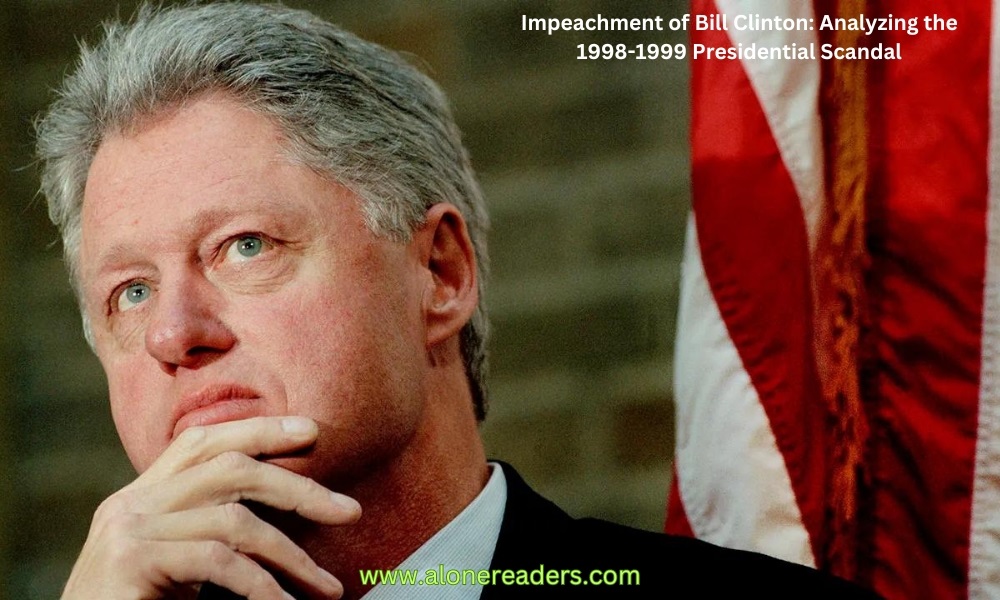
The impeachment of Bill Clinton marked a profound episode in American political history, intertwining personal indiscretions with public duties, and highlighting the complex interplay between law and politics. The scandal erupted out of a sexual harassment lawsuit filed against Clinton, leading to charges of perjury and obstruction of justice that eventually culminated in his impeachment by the House of Representatives in December 1998.
The origin of the impeachment process can be traced back to an earlier lawsuit by Paula Jones, who accused Clinton of sexual harassment when he was Governor of Arkansas. While the case was initially dismissed, it resurfaced in the appellate court, and Clinton was ordered to testify. It was during this testimony that his affair with Monica Lewinsky, then a White House intern, came to light. The investigation, initially centered on financial dealings in the Whitewater controversy, expanded to include Clinton's personal misconduct after investigators learned of his relationship with Lewinsky.
Special Prosecutor Kenneth Starr, appointed to the Whitewater case, played a pivotal role in the impeachment saga. The release of the Starr Report in September 1998, which contained explicit details of Clinton's affair with Lewinsky, sparked a media frenzy and public uproar. The report accused Clinton of 11 possible grounds for impeachment, including perjury, obstruction of justice, and abuse of power.
The political battle that ensued was intense. In December 1998, after heated debates and a nation polarized over the significance of personal morality versus public duty, the House of Representatives voted to impeach Clinton on two charges: perjury to a grand jury and obstruction of justice. The articles of impeachment then moved to the Senate for a trial, a necessary step for any removal from office.
The Senate trial, which took place in early 1999, was a spectacle of legal and political maneuvering. Clinton's defense team argued that his actions, while morally reprehensible, did not rise to the level of "high crimes and misdemeanors" as required for impeachment under the U.S. Constitution. After a detailed review of the evidence and testimonies, the Senate acquitted Clinton on both charges in February 1999. The vote fell short of the two-thirds majority required to remove him from office, with all Democrats and some Republicans voting not guilty.
The aftermath of the impeachment trial left a mixed legacy. For Clinton, his presidency survived, and his popularity even increased post-trial. However, the scandal left a mark on his legacy, overshadowing many of his policy achievements. For Monica Lewinsky, the intense public scrutiny transformed her into a national figure and advocate against cyberbullying and harassment. The broader political landscape was also affected, with deepened partisan divisions that some argue have persisted and intensified in American politics.
The Clinton impeachment also set precedents in terms of legal and ethical standards for public officials, influencing future debates over the accountability of elected leaders. It highlighted the potential consequences of private indiscretions for public officials and the intense scrutiny they face. Additionally, it sparked discussions about the power dynamics in relationships between high-ranking officials and their subordinates, contributing to later conversations around power and consent in the workplace.
Moreover, the impeachment raised questions about the role of the judiciary and Congress in overseeing the executive branch, testing the constitutional promise of checks and balances. It demonstrated the political nature of the impeachment process, influenced heavily by partisan considerations rather than solely by legal merit.
As history continues to evaluate the impeachment of Bill Clinton, it remains a significant study of the complexities of power, responsibility, and ethics in American presidential history. It serves as a reminder of the intricate relationship between personal integrity and public trust, a theme that resonates in political spheres around the world.